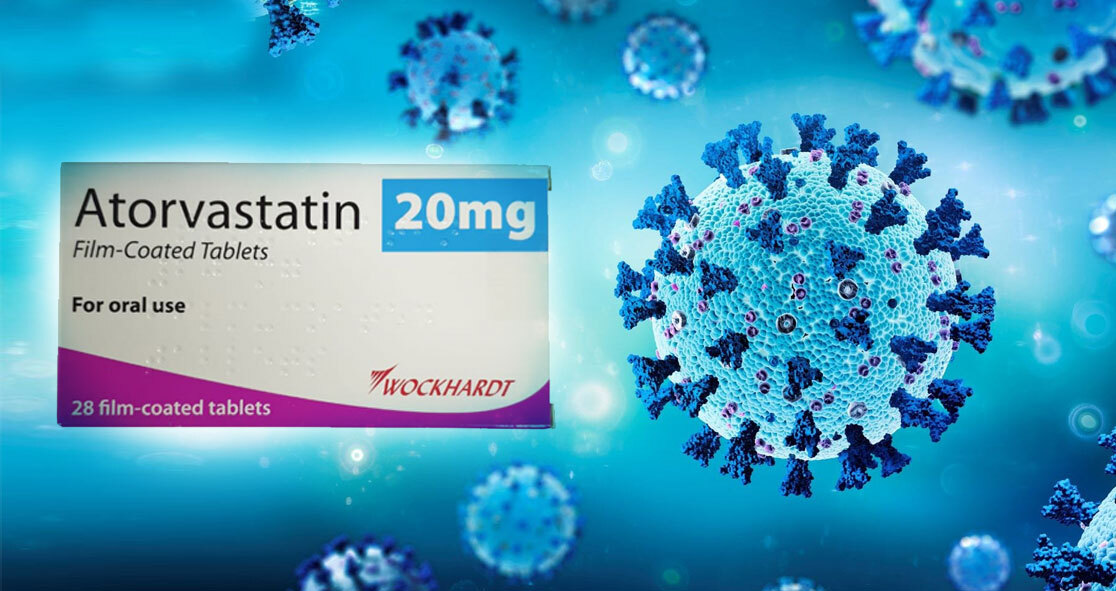A study, presented on May 16 at the virtual American College of Cardiology (ACC) 2021 Scientific Session, has found that some patients benefited from receiving atorvastatin within 7 days of COVID-10 symptoms onset.
Dr. Behnood Bikdeli of Brigham and Women’s Hospital, Boston, Massachusetts, said that in COVID-19, there is an exaggerated immune response, which potentially increases the risk of thrombotic events.
“In this context,” he explained, “it is interesting to think about statins as potential agents to be studied in COVID-19, because as well as having lipid-lowering actions, they are also thought to have anti-inflammatory and antithrombotic effects.”
In a previous study, published a few years ago, simvastatin (Zocor) was found to have no significant effect on patients with acute respiratory distress syndrome (ARDS), but in some patients with hyper-inflammatory ARDS, the drug reduced mortality, according to Dr. Bikdeli.
Furthermore, some observational studies conducted on patients with COVID-19 have found that the use of statins was linked to reduced mortality among hospitalized patients. However, the data is limited to guide clinical practice.
In the recent study, the researchers found that atorvastatin did not reduce the primary outcome in cases of venous or arterial thrombosis, treatment with extracorporeal membrane oxygenation (ECMO), or mortality within 30 days.
However, in a subgroup of patients who were given atorvastatin within the first 7 days of COVID-19 symptom onset, there was a hint of a potential protective effect, according to Medscape Medical News.
The subgroup had more than 170 patients. Of those, nearly 31% who had taken atorvastatin were found to have some protective effect.
“This is an interesting observation, and it is plausible, as these patients may be in a different phase of COVID-19 disease,” Dr. Bikdeli said, “but we need to be cognizant of the multiplicity of comparisons, and this needs to be further investigated in subsequent studies.”
Dr. Binita Shah, Cardiologist, NYU Langone Hospitals, New York, discussed the study at the ACC presentation and said it is important to enroll COVID-19 patients into such trials but the patients in the ICU may not have been the right population to test statins.
She said, “Maybe for these very sick patients, it is just too late. Trying to rein in the inflammatory cytokine storm and the interaction with thrombosis at this point is very difficult.”
Dr. Shah suggested that it could be appropriate to use statins in an earlier phase of COVID-19 to prevent the inflammatory process, rather than using it later.
She speculated, “In the cardiovascular literature ― at least in ACS [acute coronary syndrome] ― high statin doses are used to see short-term benefits. In this very inflammatory milieu, I wonder whether a high-intensity regimen would be more beneficial.”
Dr. Bikdeli replied that a “low dose of atorvastatin was chosen because early on, several antiviral agents, such as ritonavir, were being used for COVID-19 patients, and these drugs were associated with increases in liver enzyme levels.”
“We didn’t want to exacerbate that with high doses of statins,” he explained. “But we have now established the safety profile of atorvastatin in these patients, and in retrospect, yes, a higher dose might have been better.”
Sold under the brand name Lipitor, atorvastatin is one of the common cholesterol-lowering drugs, which is advised along with a healthy diet, exercise, and weight loss regimen. It helps reduce the risk of stroke and heart attack. Atorvastatin belongs to the class of drugs called HMG-CoA reductase inhibitors that work by slowing the production of cholesterol in the body. The article was published on Medscape Medical News.























